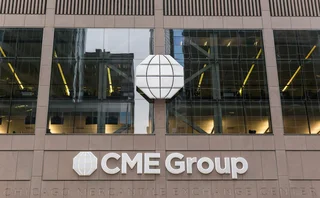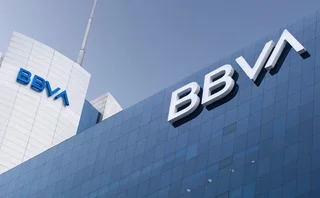
Banks eye Traiana for EM forex netting service
Industry turns to Icap-owned utility as CLS emerging markets push stalls

A group of large banks has tapped Icap-owned Traiana to help streamline the settlement process for spot and derivatives trades in emerging market currencies.
The plan is to use Traiana's NetLink service for portfolio reconciliation across counterparties so banks can make a single net payment to each other – firms currently make hundreds of gross payments each day, which drives up the cost of
Only users who have a paid subscription or are part of a corporate subscription are able to print or copy content.
To access these options, along with all other subscription benefits, please contact info@risk.net or view our subscription options here: http://subscriptions.risk.net/subscribe
You are currently unable to print this content. Please contact info@risk.net to find out more.
You are currently unable to copy this content. Please contact info@risk.net to find out more.
Copyright Infopro Digital Limited. All rights reserved.
As outlined in our terms and conditions, https://www.infopro-digital.com/terms-and-conditions/subscriptions/ (point 2.4), printing is limited to a single copy.
If you would like to purchase additional rights please email info@risk.net
Copyright Infopro Digital Limited. All rights reserved.
You may share this content using our article tools. As outlined in our terms and conditions, https://www.infopro-digital.com/terms-and-conditions/subscriptions/ (clause 2.4), an Authorised User may only make one copy of the materials for their own personal use. You must also comply with the restrictions in clause 2.5.
If you would like to purchase additional rights please email info@risk.net
More on Markets
Opinions split on EU bond balance sheet squeeze
Some say QT and issuance wave will hamper intermediation; others say dealers nimble enough to respond
Eurex looks to shine ‘more light’ on off-book liquidity
Block order book initiative to aid price discovery slated for later this year
CME outage sparks FX soul search
How November’s halt exposed fragile wiring of new futures-led market structure
CME outage exposed FX market’s futures dependency, says SNB
Study finds EUR/USD spreads widened eightfold as non-bank PTFs blew out by nearly 30 times in November halt
CME rankles market data users with licensing changes
Exchange began charging for historically free end-of-day data in 2025
Gap risk fears push FX traders into Sunday-night Asia hours
Volumes surge at Singapore open as Trump’s weekend announcements force early risk management
BBVA joins growing Spire repack platform
Spanish bank becomes 19th dealer on multi-bank SPV issuer amid rising investor interest
ISITC’s Paul Fullam on the ‘anxiety’ over T+1 in Europe
Trade processing chair blames budget constraints, testing and unease over operational risk ahead of settlement move







